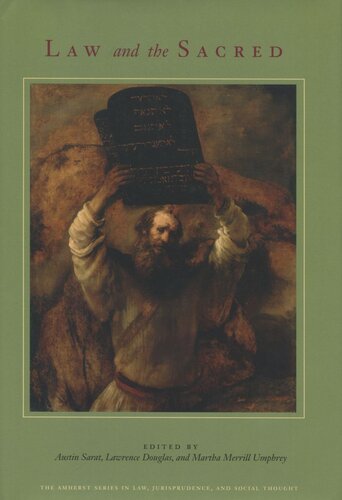

Most ebook files are in PDF format, so you can easily read them using various software such as Foxit Reader or directly on the Google Chrome browser.
Some ebook files are released by publishers in other formats such as .awz, .mobi, .epub, .fb2, etc. You may need to install specific software to read these formats on mobile/PC, such as Calibre.
Please read the tutorial at this link: https://ebookbell.com/faq
We offer FREE conversion to the popular formats you request; however, this may take some time. Therefore, right after payment, please email us, and we will try to provide the service as quickly as possible.
For some exceptional file formats or broken links (if any), please refrain from opening any disputes. Instead, email us first, and we will try to assist within a maximum of 6 hours.
EbookBell Team

4.0
76 reviewsThe specter of the sacred always haunts the law, even in the most resolute of contemporary secular democracies. Indeed, the more one considers the question of the relation between law and the sacred, the more it appears that endless debate over the proper relationship of government to religion is only the most quotidian example of a problematic that lies at the heart of law itself. And currently, as some in the United States grapple with the seeming fragility of secular democracy in the face of threatening religious fundamentalisms, the question has gained a particular urgency. This book explores questions about the fundamental role of the sacred in the constitution of law, historically and theoretically. It examines contemporary efforts to separate law from the sacred and asks: How did the division of law and sacred come to be, in what ways, and with what effects? In doing so, it highlights the ambivalent place of the sacred in the self-image of modern states and jurisprudence. For if it is the case that, particularly in the developed West, contemporary law posits a fundamental conceptual divide between sacred and secular, it nevertheless remains true that the assertion of that divide has its own history, one that defines Western modernity itself.